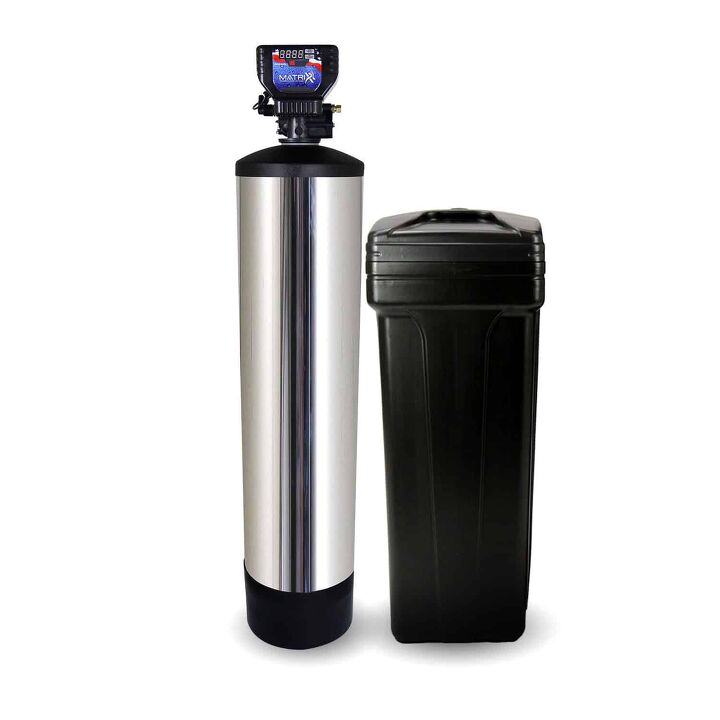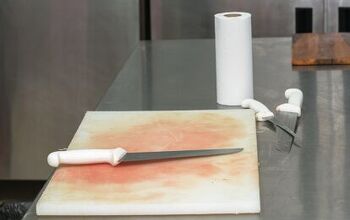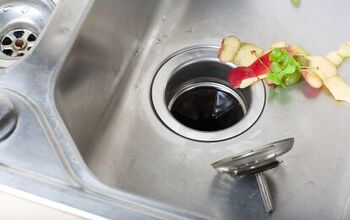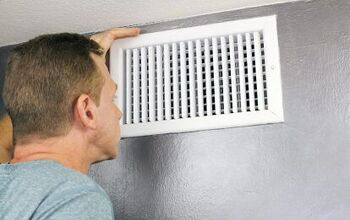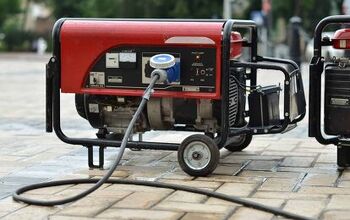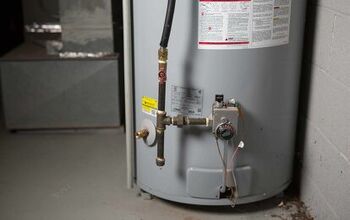Water Smells Like Rotten Eggs? (Possible Causes & Fixes)

There is nothing worse than running the water and getting hit with the smell of sulfur and rotten eggs. It is unpleasant, confusing, and ultimately, concerning. But why is it that your water smells like rotten eggs all of the sudden?
It could be because you have a water softener, and you need to replace the magnesium anode. Water softeners don’t remove hydrogen sulfide which creates sulfur and rotten egg odor. Otherwise, there could be an accumulation of hydrogen sulfide within your groundwater, plumbing system, or well.
You can flush out hydrogen sulfide by increasing your water heater temperature to 160 degrees Fahrenheit. Otherwise, you may simply need to infuse your water with a chlorine solution to remove contaminants. Let’s explore the possible causes of the rotten egg smell in your water, and what you can do about it.
Do You Need to Hire a Plumber?
Get free, zero-commitment quotes from pro contractors near you.

Possible Causes
Your water can smell like rotten eggs for different reasons depending on when the odor appears. For example, if your water only smells that bad when you use hot water, it points to the water heater. However, cold water that smells foul is likely due to a water softener that has parts that need replacement.
The smell may appear when you use hot and cold water, and that suggests that it is the well or groundwater. You can determine exactly where the source of the foul smell comes from by testing your water.
1. Water Softener
You may smell rotten eggs in your water because it is filled with contaminants. The most common contaminant that causes a rotten egg smell is hydrogen sulfide. The water will smell like rotten eggs if there is too much hydrogen sulfide in your water.
This smell is also similar to sulfur, and it is extremely unpleasant and overpowering. It appears when you run the water in most cases, and it is difficult to ignore. You can count on hydrogen sulfide in the water being the problem if it smells like rotten eggs even if it is room temperature water.
In other cases, the water may smell like rotten eggs only when you run hot water. However, if the rotten egg smell is always present, then it points to the water itself. The most common cause for the rotten egg smell in your lukewarm or room temperature water is that you used a water softener.
Solution
Have you recently used a water softener right before your water took on a rotten egg smell? If so, you can blame the water softener for the rotten egg and sulfur smell. Water softeners can also cause your water to be salty, and it’s hard to say which is worse.
Many water softeners contain sulfur, and it can cause your treated water to smell like rotten eggs. The only course of action is to stop using water softener altogether or change out the solution in it. You can also check your water softener to make sure that it isn’t clogged.
Clogs in your water softener can cause a buildup of sulfur which creates a foul smell. Either clean your water softener or change out the solution in your water softener.
2. Water Source
Your water source may also have sulfur contaminants that create sulfur and rotten egg smell. This is a more sinister problem because it can pose a risk to your health. This is more common for homeowners that have a well system, but it can originate in plumbing systems as well.
A buildup of sulfur bacteria can create a slime of sorts that clogs plumbing and well systems. This clog allows for more bacteria to form and spread, and you can detect it by looking at it. The slime often takes on a grey, brown, or black appearance and forms within the plumbing or well.
If you find corrosion within your well or plumbing system, then it is almost certainly due to sulfur bacteria in the water source. This problem also manifests as you do dishes, and the contaminated water leaves a dirty sheen on the silverware and plates. There is no easy way around this problem, but you need to take action right away.
Solution
There is no quick and easy solution to a contaminated water source that smells like rotten eggs. The first step that you should take is to bring your water to a laboratory to have it tested. Professional plumbers can also retrieve a sample to test it for sulfur contaminants.
You can attempt to disinfect your well and plumbing system on your own if you’re up to it. The best way to do this is to use heavy doses of chlorine. However, it is recommended that only professionals treat and maintain wells and plumbing systems.
Well contractors and plumbers are best suited to treat wells and systems that contain bacteria, sulfur, and iron. It could be due to the sewer system itself, and that may be up to your municipality to treat. Contact a professional, have your water tested, and have your well or plumbing system treated professionally.
3. Water Heater
You can tell that the water heater is the problem if your rotten egg smell only appears in hot water. You still need to enlist a boiler inspector to know for sure if that is the problem, but it likely is. Water heaters can accumulate a buildup of contaminants, bacteria, and minerals that affect the odor.
It can be safe to drink water that smells like rotten eggs, but it isn’t always safe to do so. If your water heater has a buildup of hydrogen sulfide, it’s best to avoid drinking it. Before you do anything, call a boiler inspector to make sure that your water heater is the cause of the problem.
Solution
You can solve this problem on your own if you replace the magnesium anode. Turn off the water and locate the magnesium anode at the top of the heater. Make sure to release the water pressure before you unscrew the plug holding the anode in place.
Purchase a new anode, put it in the old anode’s place, and secure the plug. However, the anode isn’t always the problem, and you may have to flush the water with chlorine. Run a chlorine and bleach solution through the water heater to kill the bacteria.
With that said, sometimes the solution can’t kill all of the bacteria, and the bacteria can bounce back. In that case, you can try to boil out the impurities and increase the water temperature. Raise the water temperature to 160 degrees Fahrenheit for 3-4 hours to kill the bacteria and remove the rotten egg smell.
4. Groundwater
You can tell that groundwater is the problem if the smell appears with cold and hot water, in many cases. Hydrogen sulfide can appear in groundwater easily, and high levels of it can prove to be dangerous. Chemicals, minerals, metals, and contaminants can make their way into groundwater easily.
This is similar to when rotten egg and sulfur smell emits from your well or plumbing system. You can have your groundwater tested for contaminants, but the results will likely point to hydrogen sulfide. Contaminated groundwater may indicate that the area surrounding your home has many contaminants, and that is a serious issue.
Solution
You can hire a service to perform aeration outside of your home to help remove contaminants from your groundwater. However, you may need to purchase an activated carbon filter or oxidizing media filter. These filters work to remove impurities and keep your water clean so it doesn’t reek of rotten eggs.
Carbon filters are a great option because they last several years before you need to replace them. They keep gases and contaminants at bay and trap them within the filter. Make sure to select a large carbon filter, otherwise, you will need to replace it after only a few months.
Oxidizing media filters are another great option, particularly ones with manganese greensand. The manganese greensand removes high levels of hydrogen sulfide to protect your drinking water. Both options are great, but the carbon filter is the best option for lasting results.
Is Smelly Water Safe To Drink?
Smelly water is generally safe to drink if the cause is hydrogen sulfide. However, hydrogen sulfide can eventually clog wells and plumbing systems and that makes it unsafe. Bacteria can thrive when wells and plumbing systems clog, and that eventually becomes unsafe.
You can fix this problem using the methods from previous sections in most cases and make it safe. However, you should still submit a water sample to a testing facility or professional to make sure it is suitable for drinking. The results may indicate that there is sewage in the water, and that is unsafe to consume.
It is safe to bathe in a shower in water that smells like rotten eggs as well, in most cases. The main point is that you should test your water so that you know exactly what the cause of the odor is. It is usually hydrogen sulfide, but it’s not worth the risk in case it turns out to be sewage in your water.
Related Questions
Does hydrogen sulfide dissolve in water?
Hydrogen sulfide does dissolve in water, but it becomes a mild acid when that happens. This mild acid can be dangerous to your plumbing or well system if there is too much. The acid can cause a slimy buildup that allows contaminants to run wild and create a foul odor.
Do water softeners remove iron?
Water softeners remove small amounts of iron and similar minerals and chemicals. However, the magnesium anode in water softeners can lead to the buildup of hydrogen sulfide. This buildup can lead to a rotten egg smell, and you need to replace the magnesium anode.
Does hydrogen sulfide corrode copper?
Hydrogen sulfide can corrode copper and similar metals after enough time has passed. The timeline depends on your hydrogen sulfide levels and how much of it dissolves in the water. That is why rotten egg smells can be a warning sign that corrosion and pipe damage may be in your future.
Do You Need to Hire a Plumber?
Get free, zero-commitment quotes from pro contractors near you.

Summing It Up
Rotten egg odors appear when hydrogen sulfide builds up in one of your water sources. You can blame your water heater if the smell only appears when you use hot water. In that case, you can increase the temperature to 160 degrees Fahrenheit to effectively boil out the contaminants.
Replace the magnesium anode in your water softener if the smell appears when you use cold water. If the smell persists with cold and warm water, you need to have your water tested. That suggests that the problem is in the groundwater, well, or plumbing system.
You can flush out hydrogen sulfide with a chlorine solution which also kills bacteria. Don’t hesitate to have a professional test your water to make sure there is no sewage in it.
Related Guide

Nick Durante is a professional writer with a primary focus on home improvement. When he is not writing about home improvement or taking on projects around the house, he likes to read and create art. He is always looking towards the newest trends in home improvement.
More by Nick Durante




